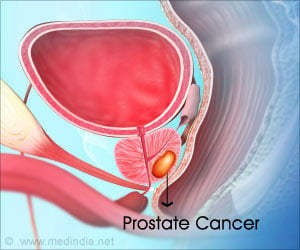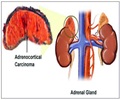Fears of a link between testosterone replacement therapy and cardiovascular risk are misplaced, shows a review published in this month's Mayo Clinic Proceedings.

"There's no good evidence that we could find that testosterone therapy increases cardiovascular risk," says lead author Abraham Morgentaler, MD, of Director of Men's Health Boston and a urologist on staff at Beth Israel Deaconess Medical Center. "That's not to say it's perfectly safe. But we cannot find evidence and the headlines that jumped out on recent retrospective studies appear to be too strong."
Importantly, and under-recognized among physicians, Morgentaler adds, "review of the literature clearly reveals a strong relationship between higher serum testosterone concentrations as being beneficial for reduction in cardiovascular disease and cardiovascular risk factors."
Testosterone is a hormone that, during puberty, helps build a man's muscles, deepens his voice and increases the size of his reproductive organs. As adults, men rely on the hormone to keep muscles and bones strong and to maintain an interest in sex.
Testosterone levels generally begin a gradual decline after the age of 30, a drop that may be accompanied by a decrease in sex drive. In recent years, the use of testosterone replacement therapy has increased substantially, aided in part by "patient-friendly formulations" such as topical gels that are widely advertised on television.
Such advertisements, combined with two recent studies raising questions about cardiovascular risk associated with the treatment, were the backdrop to an FDA advisory panel on testosterone therapy convened in September 2014. The panel voted 20-1 in favor of conducting a large-scale study to assess cardiovascular risk associated with testosterone therapy; the panel also voted in favor of a change in labeling requirements restricting the indications for use of testosterone.
Advertisement
The article by Morgentaler and colleagues in the fields of urology, endocrinology, family medicine and steroid research identified only four published scientific journal articles since 1940 that suggest increased cardiovascular risks with testosterone prescriptions. Two of those four articles, which generated substantial media coverage over the last 15 months, had "serious methodological limitations; one placebo-controlled trial with few major adverse cardiac events and one meta-analysis that included questionable studies and [cardiovascular] events."
Advertisement
Two observational studies have shown that men with low testosterone levels who did not receive testosterone replacement therapy died at double the rate of similar men who did receive testosterone. A small number of randomized controlled studies have even shown that men with known heart disease (specifically angina or congestive heart failure) were able to function better when they received testosterone compared with a placebo. Numerous studies have shown that risk factors for cardiovascular disease - such as waist circumference, obesity, and fat mass - all improve with testosterone therapy.
Additional studies have shown benefits of testosterone therapy, including increased sex drive, energy and bone mineral density. The authors also describe "promising new data" that suggest testosterone therapy improves insulin sensitivity, reduces blood glucose and hemoglobin A1C levels in men with Type 2 diabetes or obesity.
Yet public attention appears to have been focused on the four studies that "have undergone serious criticism in the scientific literature. The FDA itself has provided commentary on these studies, concluding that none provide compelling evidence of increased cardiovascular risk."
The testosterone story "has been turned upside-down," says Morgentaler, "by trumpeting studies providing remarkably weak evidence of risk, and ignoring a substantial literature with reassuring or beneficial results."
Morgentaler and his colleagues write "public health may be harmed not only by inadequate appreciation of an actual risk but also by the failure to offer beneficial treatment for a medical condition because of false claims of risk concerns."
In addition to Morgentaler, an Associate Clinical Professor of Urology at Harvard Medical School, authors include: Martin M. Miner, MD, Department of Family Medicine at Brown University and on staff at Miriam Hospital Men's Health Center, Providence, RI; Monica Caliber, MSc, Fort Lauderdale, FL; Andre T. Guay, MD (deceased), Department of Endocrinology, Lahey Clinic, Burlington, MA; Mohit Khera, MD, Scott Department of Urology, Baylor College of Medicine, Houston TX; and Abdulmaged M. Traish, PhD, Department of Biochemistry and Department of Urology, Boston University School of Medicine, Boston, MA.
Morgentaler has been on the scientific advisory board or worked as a consultant for AbbeVie, Inc., Auxilium Pharmaceuticals, Inc., Clarus Therapeutics, Endo Pharmaceuticals, and TesoRx, and has received research funding from Antares Pharma, Auxilium Pharmaceuticals, Inc., Lipocine Inc. and Eli Lilly and Company. Khera has worked as a consultant for Auxilium Pharmaceuticals, Inc. and Merck & Co. and has received research funding from Auxilium Pharmaceuticals, Inc. Miner has worked as a consultant for AbbeVie Inc. and Lipocine Inc., and has received research funding from Forest Laboratories, Inc. Guay has worked as a consultant for Endo Pharmaceuticals Inc., and Repros Pharmaceuticals, Inc.
Beth Israel Deaconess Medical Center is a patient care, teaching and research affiliate of Harvard Medical School and consistently ranks as a national leader among independent hospitals in National Institutes of Health funding.
BIDMC is in the community with Beth Israel Deaconess Hospital-Milton, Beth Israel Deaconess Hospital-Needham, Beth Israel Deaconess Hospital-Plymouth, Anna Jaques Hospital, Cambridge Health Alliance, Lawrence General Hospital, Signature Healthcare, Beth Israel Deaconess HealthCare, Community Care Alliance and Atrius Health. BIDMC is also clinically affiliated with the Joslin Diabetes Center and Hebrew Senior Life and is a research partner of Dana-Farber/Harvard Cancer Center and The Jackson Laboratory. BIDMC is the official hospital of the Boston Red Sox.
Source-Newswise














